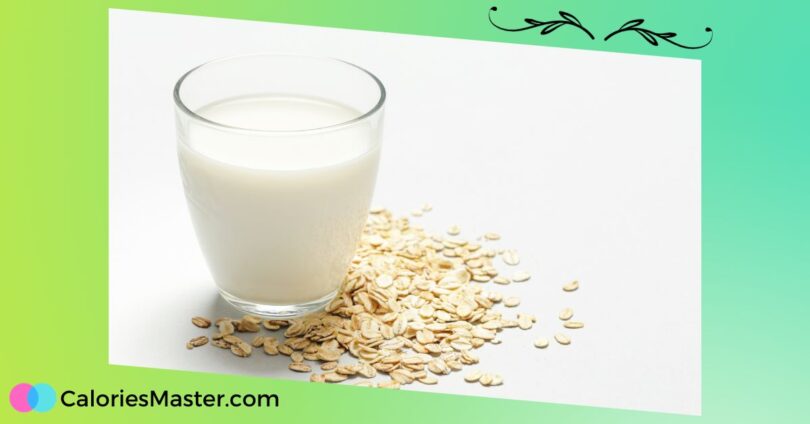If you’re someone who’s trying to maintain or lose weight, you may be wondering if oat milk is a good choice for you.
After all, while oat milk is a popular alternative to dairy milk, it’s still a relatively new addition to the market, and you may be concerned about how it could impact your waistline. So, does oat milk make you gain weight?
The short answer is that it depends on a variety of factors. Like any food or drink, oat milk can contribute to weight gain if consumed in excess. However, oat milk is generally lower in calories and fat than dairy milk, and it contains a range of nutrients that can support a healthy diet.
In this article, we’ll explore the potential effects of oat milk on weight and health, and provide evidence-based recommendations for incorporating it into your diet.
Understanding Oat Milk
If you are trying to lose weight or maintain a healthy weight, it is important to understand the nutritional value of the foods and drinks you consume. Oat milk is a popular alternative to dairy milk, but does it make you gain weight?
Oat milk is made from whole oats that are soaked in water, blended, and then strained. It is a plant-based milk that is naturally free from lactose, cholesterol, and saturated fat. Oat milk is also a good source of vitamins and minerals, including calcium, vitamin D, and iron.
However, like all foods and drinks, oat milk contains calories. One cup of oat milk contains around 120-140 calories, depending on the brand and any added sweeteners. This is similar to the calorie content of dairy milk.
Oat milk is also a source of carbohydrates, including natural sugars. One cup of oat milk contains around 16-20 grams of carbohydrates, which is higher than the carbohydrate content of dairy milk.
However, the carbohydrates in oat milk are complex carbohydrates, which means they are digested more slowly than simple carbohydrates, such as those found in sugary drinks and snacks.
Overall, oat milk can be a healthy addition to your diet if consumed in moderation as part of a balanced diet. It is important to check the label for added sugars and to consider the calorie content when incorporating oat milk into your diet.
Caloric Content of Oat Milk
Oat milk has become a popular alternative to cow’s milk due to its creamy texture and nutty flavour. It is also a great option for people who are lactose intolerant or have a milk allergy. But if you’re watching your weight, you might be wondering if oat milk is a good choice for you.
One cup of unsweetened oat milk contains around 120 calories, which is similar to the number of calories in a cup of cow’s milk. However, the caloric content can vary depending on the brand and whether it is sweetened or flavoured.
It’s important to note that oat milk is not inherently fattening. It is lower in fat than cow’s milk, with only 2.5 grams of fat per cup compared to 8 grams in whole milk. Oat milk is also cholesterol-free.
If you’re concerned about the caloric content of oat milk, you can choose unsweetened varieties or make your own at home. Adding sweeteners or flavourings, such as vanilla or chocolate, can significantly increase the calorie count.
Overall, oat milk can be a healthy addition to your diet as long as you are mindful of the caloric content and choose unsweetened or low-calorie options.
Oat Milk and Weight Gain
If you are trying to maintain a healthy weight, you may be wondering if oat milk is a good choice for you. Oat milk is a popular alternative to dairy milk, but is it a good choice if you are trying to lose weight?
One of the benefits of oat milk is that it is lower in calories than dairy milk. One cup of oat milk contains around 120 calories, while one cup of whole milk contains around 150 calories.
This means that if you switch from dairy milk to oat milk, you may be able to reduce your calorie intake and potentially lose weight.
However, it is important to note that oat milk does contain carbohydrates, which can contribute to weight gain if consumed in excess. One cup of oat milk contains around 16 grams of carbohydrates, which is similar to the amount found in one slice of bread.
If you are trying to lose weight, it is important to be mindful of your overall carbohydrate intake and to ensure that you are not consuming more than your body needs.
In summary, oat milk can be a good choice if you are trying to lose weight, as it is lower in calories than dairy milk. However, it is important to be mindful of your overall carbohydrate intake and to ensure that you are not consuming more than your body needs.
Factors Contributing to Weight Gain
If you are concerned about gaining weight, it is essential to understand the factors that contribute to it. Here are some factors that may cause weight gain:
High-Calorie Intake
If you consume more calories than your body needs, the excess calories will be stored as fat, leading to weight gain. Oat milk is not a low-calorie drink, and excessive consumption of it can lead to weight gain.
Sedentary Lifestyle
If you do not engage in physical activities, your body will not burn calories, leading to weight gain. It is essential to combine a healthy diet with regular exercise to maintain a healthy weight.
Genetics
Your genetics can play a role in determining your body weight. Some people may have a genetic predisposition to gain weight more easily than others.
Medical Conditions
Certain medical conditions, such as hypothyroidism, can slow down your metabolism, leading to weight gain. It is essential to consult a healthcare professional if you experience unexplained weight gain.
In conclusion, weight gain can be caused by various factors, including high-calorie intake, a sedentary lifestyle, genetics, and medical conditions. It is essential to maintain a healthy diet, engage in regular exercise, and consult a healthcare professional if you experience unexplained weight gain.
Oat Milk in a Balanced Diet
Oat milk, a plant-based milk alternative, can be a valuable component of a balanced diet, providing several nutritional benefits.
Rich in vitamins, minerals, and fibre, oat milk is a suitable option for those seeking a dairy-free or vegan alternative. Its potential advantages in a balanced diet include:
Role of Oat Milk
Oat milk has become a popular alternative to cow’s milk, especially for those who are lactose intolerant or have a dairy allergy. Oat milk is made from whole oats and water, and it is often fortified with vitamins and minerals.
Oat milk is lower in calories and fat than cow’s milk, making it a good choice for those looking to manage their weight.
Oat milk is also a good source of fibre, which helps to keep you feeling full for longer. The fibre in oat milk can also help to regulate your digestion and lower your cholesterol levels.
Oat milk is also a good source of protein, which is important for maintaining muscle mass and keeping your immune system strong.
Recommended Intake
While oat milk can be a healthy addition to your diet, it is important to remember that it should be consumed as part of a balanced diet. The recommended intake of oat milk is around 250ml per day, which is roughly one glass.
It is important to note that oat milk, like all plant-based milk, does not contain as much calcium as cow’s milk. To ensure that you are getting enough calcium in your diet, it is important to consume other calcium-rich foods such as leafy green vegetables, tofu, and almonds.
In summary, oat milk can be a healthy addition to your diet when consumed in moderation as part of a balanced diet. It is a good source of fibre and protein, but it is important to ensure that you are getting enough calcium from other sources.
Alternatives to Oat Milk
If you are looking for alternatives to oat milk, there are several options available that can be used as a substitute in your diet. Here are some of the most popular ones:
Almond Milk
Almond milk is a popular alternative to oat milk. It is low in calories and fat, making it a great option if you are trying to lose weight. It is also a good source of vitamin E, which is important for healthy skin and eyes.
Soy Milk
Soy milk is another popular alternative to oat milk. It is rich in protein and contains all the essential amino acids that your body needs. It is also a good source of calcium, which is important for strong bones.
Coconut Milk
Coconut milk is a creamy and delicious alternative to oat milk. It is high in calories and fat, so it is not a good option if you are trying to lose weight. However, it is a good source of medium-chain triglycerides (MCTs), which can help boost your metabolism.
Rice Milk
Rice milk is a good alternative to oat milk if you have allergies or intolerances to other types of milk. It is low in calories and fat, making it a good option if you are trying to lose weight.
However, it is not a good source of protein, so you may need to supplement your diet with other sources of protein.
Overall, there are many alternatives to oat milk that you can choose from. Each one has its unique benefits and drawbacks, so it is important to choose the one that best suits your needs and preferences.
Does Oat Milk Cause Weight Gain? – Conclusion
In conclusion, there is no clear evidence to suggest that oat milk alone will make you gain weight. However, it is important to consider the overall nutritional content of your diet and lifestyle choices.
Oat milk is a low-fat and low-calorie alternative to dairy milk, making it a suitable choice for those watching their weight or looking to make healthier choices. It is also a good source of vitamins and minerals, including calcium and vitamin D.
While oat milk may not directly cause weight gain, it is important to note that consuming too many calories from any source can lead to weight gain. It is recommended to consume oat milk in moderation as part of a balanced diet.
Additionally, it is important to consider the added sugars and other ingredients in commercial oat milk products.
Some brands may contain high amounts of added sugars, which can contribute to weight gain and other health issues. It is important to read labels and choose oat milk products that are low in added sugars and other unnecessary ingredients.
Overall, oat milk can be a healthy and nutritious addition to your diet. As with any food or beverage, it is important to consume in moderation and make informed choices based on your individual nutritional needs and goals.









